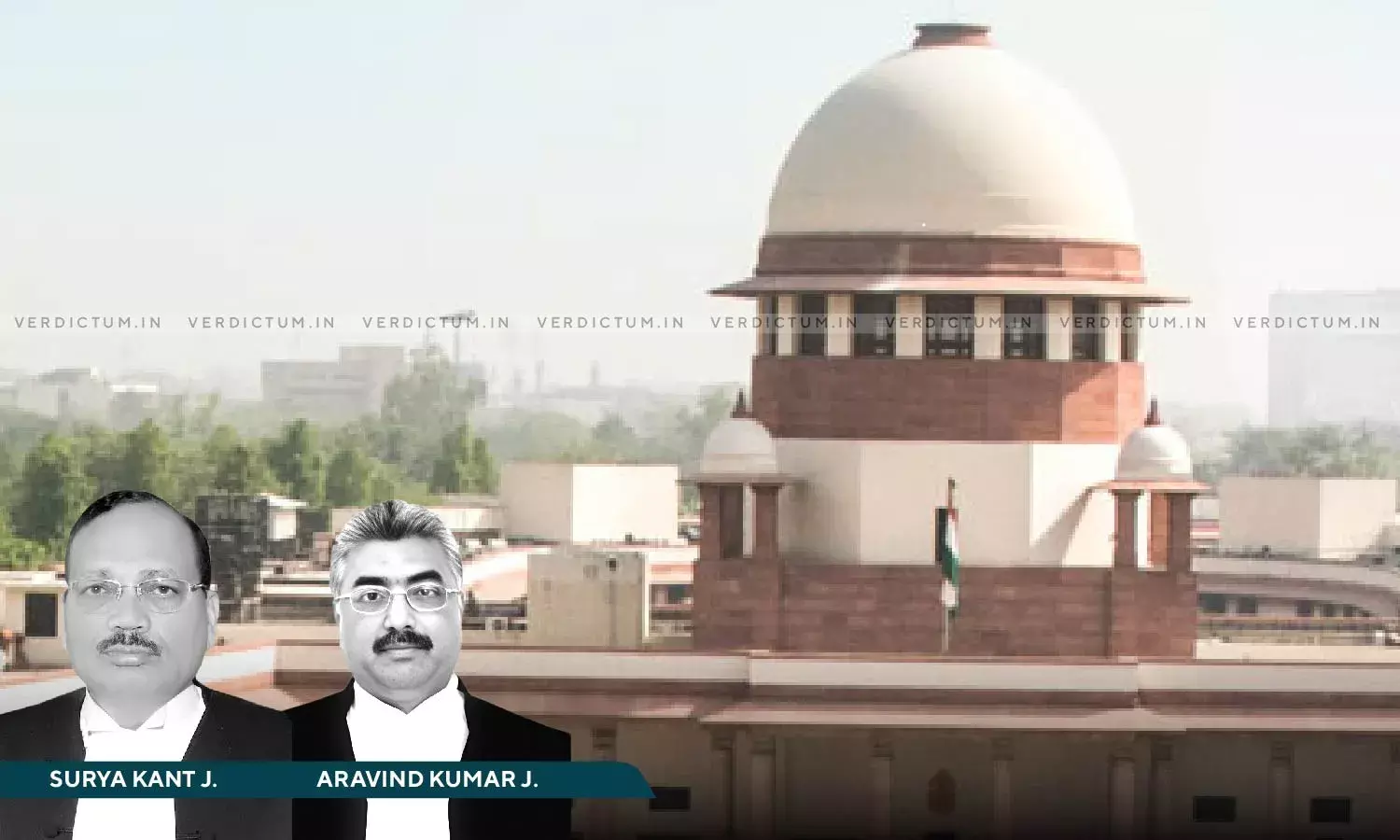A Fact That Was In Exclusive Knowledge Of Accused Alone Must Be Discovered If He Makes Voluntary Statement- SC
A Supreme Court Bench of Justice Surya Kant and Justice Aravind Kumar has reiterated that in pursuance to a voluntary statement made by the accused, a fact must be discovered which was in the exclusive knowledge of the accused alone.
Counsel Renjith B Marar, among others, appeared for the appellant. Counsel VN Raghupathy appeared for the State.
In this case, the accused was working as a labourer in the farmhouse of the deceased. He entered the deceased's room and murdered him by hitting him with an iron rod on his face. He then stole the articles from the farmhouse and sold the same. He also sold the land of said farm house to others to make undue monetary gain. The accused also attempted to conceal his act and deliberately tried to destroy the evidence.
On examining the testimonies of the witnesses, the Supreme Court noted that there was a substantial amount of evidence indicating the guilt of the accused.
The Counsel for the appellant had contended that the confession statement was not admissible evidence under Section 27 of the Evidence Act, as the method of recording the confession was quite unusual.
In response, the Court observed that "Section 27 permits the derivative use of custodial statement in the ordinary course of events. There is no automatic presumption that the custodial statements have been extracted through compulsion. A fact discovered is an information supplied by the accused in his disclosure statement is a relevant fact and that is only admissible in evidence if something new is discovered or recovered at the instance of the accused which was not within the knowledge of the police before recording the disclosure statement of the accused. The statement of an accused recorded while being in police custody can be split into its components and can be separated from the admissible portions".
In furtherance of the same, the Court observed that "is a trite law that in pursuance to a voluntary statement made by the accused, a fact must be discovered which was in the exclusive knowledge of the accused alone. In such circumstances, that part of the voluntary statement which leads to the discovery of a new fact which was only in the knowledge of the accused would become admissible under Section 27".
In that background, the Court took the considered view that "in the teeth of Section 8 read with Section 27 of the Evidence Act, that part of the confession which led to the recovery of the dead body of the victim would become admissible, apart from other articles of the deceased recovered at the instance of the accused has been identified by several witnesses independently".
In light of the same, the Court held that "On re-appreciation of entire evidence by the High Court in proper perspective it has resulted in arriving at a right conclusion viz. that accused alone has committed the murder of the deceased Mr. Jose C Kafan and there being no other possible view which could be considered as missing in the link of chain of circumstances, this Court is of the considered view that appeal deserves to be dismissed as being devoid of merits".
Cause Title: Siju Kurian v. State of Karnataka
Click here to read/download the Judgment



